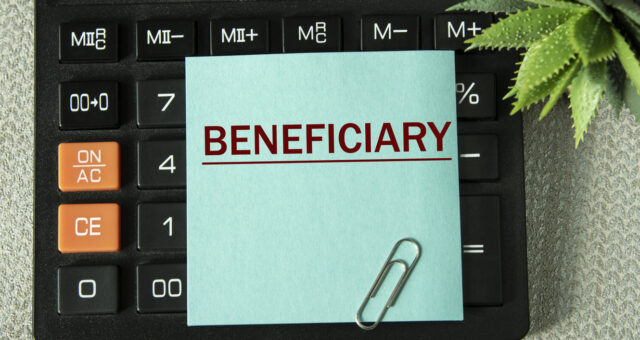You Probably Already Started…


When you open a bank account, or participate in the company sponsored retirement plan, you most likely named a beneficiary. Good news: in essence, you’ve already begun your estate plan. Keep going with these insights from legal and financial experts.
Always Be Estate Planning
Given that no one relishes planning for capacity declines or death, it’s very easy to procrastinate on making an estate plan. A simple mindset shift, may make it feel more normal to incorporate plans for our assets into our everyday lives. Lori Anne Douglass, cofounder of trust and estates law firm Douglass-Rademacher LLP shares this advice in Real Simple:
“You’re always estate planning,” says Douglass. For example, when you open a bank account and don’t have a beneficiary or a power of attorney, a family member would have to go to court to get approval so they can make financial decisions on your behalf, should something happen to you….You might already be estate planning without knowing you are. If you ever had to fill out 401K documents for work, there is a beneficiary section on there….Make sure you update the beneficiary designation on those 401k, life insurance, and pension documents. Most young people tend to put a parent down and forget to update it if they get married or have children….The basic estate plan includes not only documents for when you die, but documents for if you become disabled; your medical and financial directives.
Toward Generational Wealth
Estate and financial experts point out that it’s a big mistake to play into the assumption that estate planning is only for the “rich.” In fact any and every asset we are able to carefully pass on to the next generation matters, as Real Simple notes:
If you don’t know where to start with the process, or what you should do, the important thing to know is that there are plenty of resources and people out there to help you navigate estate planning. For BIPOC communities, the opportunities that estate planning provides for wealth accumulation and building generational wealth make it even more important to look into. If you don’t decide what you want to happen to your wealth, the courts will. “Truly, if you really want to create generational wealth, you’re not going to get that unless you’re setting out your plan for the wealth that you want to transfer,” says Jala Eaton, a licensed attorney in California and a certified trust and financial advisor. “If you don’t, there are default rules.” Here’s what you need to know about estate planning—and why it’s a critical part of your future.
Family experts at Cholewka Law emphasize: “Estate planning is something every adult should do.” Through estate planning we are able to name guardians for minor children, make decisions about our own care in the event of an accident or decline and, of course make arrangements for our assets to pass on to others. Doing all this means that our friends and loved ones are armed for difficult times—and we are too. Get a handle on the basics of estate planning right here and use these tips to start keeping better track of your assets. Then you’ll be ready to work with an estate planning lawyer on a will and or trust—or even a combination. Importantly, in doing so, you will designate a loved one, friend or professional to serve as your fiduciary. This person is generally referred to as an executor, trustee, or personal representative, depending on your circumstances and region. If you have minor children, it is also important to designate a guardian.
Regardless of the specifics of your estate plan, the fiduciaries you appoint have a legal responsibility to carry out your affairs, in accordance with the intentions set forth in your estate planning documents—and the law. When representatives are designated, fiduciary bonds, often referred to as estate bonds, are often required to safeguard the interests of the estate and beneficiaries in accordance with state law. Learn more about estate bonds right here.
At Colonial, a leading national provider of all types of fiduciary bonds, the steps to obtaining estate bonds and all other types of fiduciary bonds are easy: get a quote online, fill out the information, and enter a payment method. Print or e-file the bond from anywhere—even the law office.
Choose and Obtain Estate and Fiduciary Bonds In Minutes Here.
Estate Law?
Colonial Surety’s here with direct and speedy fiduciary bonds including: administrator, estate, executor, guardian, personal representative, probate, surrogate, trustee, conservator and more.
Uniquely, Colonial Surety provides bonds to meet the specific requirements of just about any obligee, in any state of the country.
Use our complimentary business service, The Partnership Accout® for Attorneys, and you’ll even be able to coordinate and manage all the bonds needed to keep your clients and cases moving—right from your own private dashboard.
Our customers consistently say, we’re the quick and easy way to get exactly the right bond. See for yourself today: The Partnership Accout® for Attorneys.
Founded in 1930, Colonial Surety Company is a direct writer of a wide range of bonds and insurance products. Colonial is rated “A Excellent” by A.M. Best Company, U.S. Treasury listed, and licensed for business everywhere in the USA.

